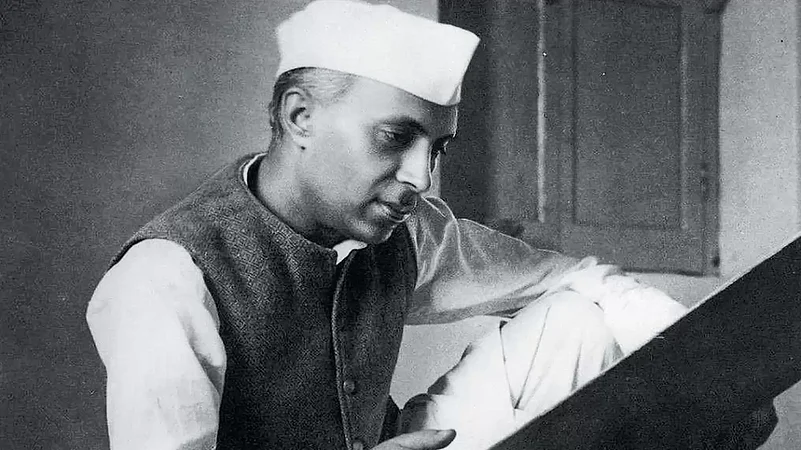Nehru famously wrote The Discovery of India while imprisoned between 1942 and 1945 at the Ahmednagar Fort. The Discovery of India chronicles not just the history, but also the culture and philosophy of an ancient nation. It references the Upanishads and the Vedas and also documents the Indus Valley Civilisation. It shares history with much ease as it comments on the socio-political scenario of the times. Nehru, however, was not, strictly speaking, a historian. He was a lawyer by training and a statesman, freedom fighter, and later a politician, by choice. His erudition though, went far beyond the hats he wore. He was well read and each of his roles informed the others.
In the decades since, the landscape of education has evolved vastly. And for the better in most parts. There are a host of choices available and opportunities have proliferated. Specialised courses exist in all disciplines imaginable. You could think of a course, and someone somewhere is likely to be teaching it.
However, in a world where professional courses often emphasise technical skills and specialised knowledge, I have had a growing realisation that a more holistic approach to education can unlock untapped potential. As a strategist who has worked with start-ups, recruitment companies and incubators for start-ups, and also as an ardent believer in the transformative power of the arts, I feel compelled to advocate for the integration of the arts like music, theatre, fine arts, and more into professional courses. Through the course of my professional journey, I have given more than just a thought to how the infusion of artistic disciplines can enrich the lives and careers of individuals pursuing professional education. I’ve tried to summarise how I believe the arts can add tremendous value to those pursuing professional courses.
Unleashing Creativity and Critical Thinking
In our pursuit of professional excellence, we often underestimate the role of creativity and critical thinking. However, the arts have a remarkable ability to ignite the spark of imagination and nurture these essential skills. For instance, my journey with music opened my eyes to a world of possibilities. Through the study of music, I developed an appreciation for patterns, learned the art of improvisation, and embraced the nuances of interpretation. These skills have proven invaluable in my professional life, enabling me to analyse complex problems from multiple angles, finding innovative solutions, and seeing beyond the obvious.
The allure of theatre, for instance, lies in its power to cultivate effective communication, empathy, and persuasive skills. Stepping onto the stage and embodying diverse characters allows one to understand the intricacies of human emotions, connect with people at a deeper level, and develop the art of persuasion. These skills honed through theatrical exploration, have had a profound impact on the practitioner’s ability to negotiate deals, present ideas with conviction, and build strong professional relationships.
Power of Emotional Intelligence, Empathy
Both of these are buzzwords in any organisation, with significant training budgets dedicated to making employees more ‘empathetic’. The arts offer a gateway to enhancing emotional intelligence and empathy, qualities that foster meaningful connections with others. For instance, a student specialising in international trade could benefit tremendously by delving into the realms of psychology to understand the motivations behind human behaviour. This knowledge could help them better understand and connect with clients, colleagues, and stakeholders, enabling them to build stronger relationships and navigate complex dynamics more effectively.
Art forms like music, dance, and visual arts possess the remarkable ability to stir our emotions and nurture empathy. Engaging with these art forms enables us to experience different perspectives, walk in someone else’s shoes, and develop a genuine understanding of diverse experiences. This emotional intelligence acquired through artistic exploration adds depth and richness to our professional interactions, making us more compassionate, inclusive, and effective leaders.
Nurturing Innovation and Adaptability
In a world characterised by rapid technological advancements (AI being the most recent) and societal shifts, professionals must embrace innovation and adaptability. With their inherent capacity for creativity, the arts play a vital role in fostering these qualities. They encourage us to think outside the box, challenge conventional wisdom, and explore new avenues.
I can personally attest to the power of creativity in professional realms. When faced with daunting challenges, the ability to draw upon my artistic background has allowed me to envision unconventional solutions, adapt to changing circumstances, and find success in unexpected places. The arts empower us with resilience, courage, and the willingness to explore uncharted territories—a vital trait for professionals navigating today’s dynamic world.
Embracing Personal Growth and Well-being
Even if we were to put aside the realm of professional accolades, integrating the arts into professional courses holds profound implications for personal growth and well-being. Engaging with the arts provides a means for self-expression, allowing us to delve into the depths of our souls and discover our truest selves. The liberation I have experienced through artistic pursuits has brought balance to my life, provided solace during challenging times, and nurtured a sense of purpose beyond professional achievements.
The arts truly serve as a sanctuary, a refuge from the pressures of our demanding careers. Immersed in the strokes of a paintbrush, the rhythms of music, or the magic of theatre, we find respite, rejuvenation, and inspiration. As professionals, this connection with our artistic side enriches our lives, enhances our well-being, and brings a sense of fulfilment that spills over into every aspect of our work.
Although this is my own opinion, I am convinced that I am not the only believer: introducing subjects from the arts, history, psychology, and other related disciplines into professional courses in India can yield immense benefits. By nurturing creativity, critical thinking, emotional intelligence, and empathy, these subjects can enhance the capabilities of aspiring lawyers, businessmen, and finance professionals. They promote innovation, adaptability, and resilience, empowering individuals to thrive in a rapidly changing world. Moreover, the integration of arts subjects contributes to holistic personal development, fostering a sense of fulfilment and well-being.
As we envision a future where professionals are not only technically skilled, but also well-rounded individuals, we must recognise the transformative power of the arts. By embracing this holistic approach to education, we can create a generation of professionals who possess the expertise to excel in their fields and the empathy, creativity, and adaptability to make a lasting impact on society.
The fusion of professional education with the arts is an alchemical process that has the power to reshape our careers and lives. By embracing subjects such as music, theatre, fine arts, and more, we unlock the door to a world of creativity, critical thinking, emotional intelligence, and empathy. We become innovators, adaptable and resilient in the face of challenges, and compassionate leaders who forge meaningful connections.
As we embark on this transformative journey, let us collectively recognise the profound impact of the arts on professional education. Let us nurture a new generation of professionals who embody the artistry of their craft, infusing their careers with passion, creativity, and a deep appreciation for the human experience. The time has come to embrace this artistic alchemy and elevate professional education to new heights, where individuals flourish not only as skilled practitioners, but as holistic and fulfilled human beings.
(This appeared in the print as 'The Artistic Alchemy')
Saumya Kumar is a business leader, musician and a seasoned startup founder













.jpg?auto=format%2Ccompress&fit=max&format=webp&w=376&dpr=2.0)








